#intertwined quotes
Explore tagged Tumblr posts
Text
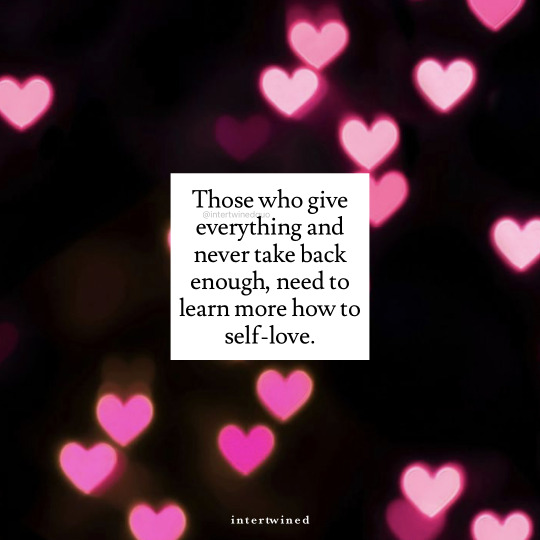
YOU ARE THE FIRST LOVE OF YOUR LIFE. 💘
#love quotes#tumblr quotes#writers quotes#quotes daily#quote of the day#writers community#self love quotes#selflovequotes#selfcare tips#selfcarequotes#relationship quotes#couples goals#healing quotes#quotes aesthetic#quotes blog#intertwined quotes
11 notes
·
View notes
Text
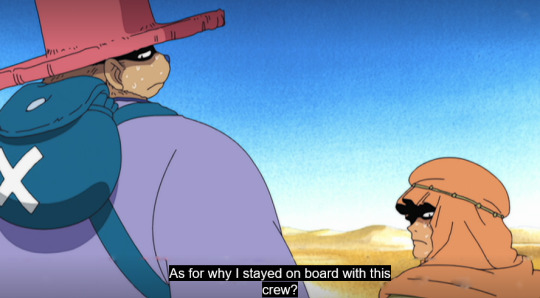

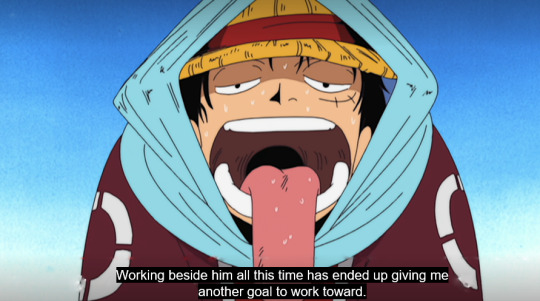
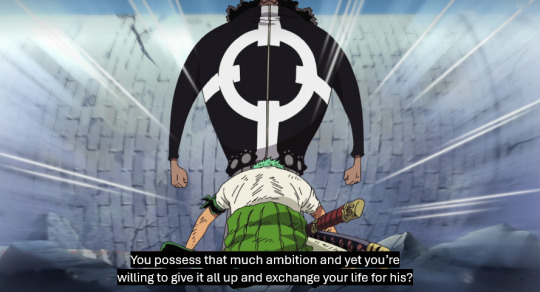
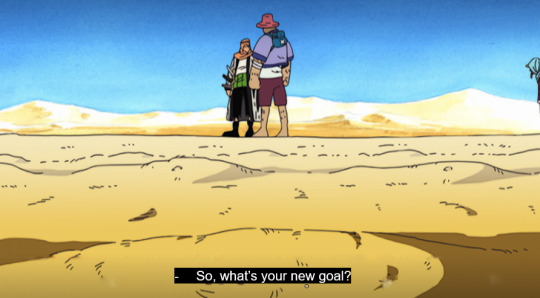
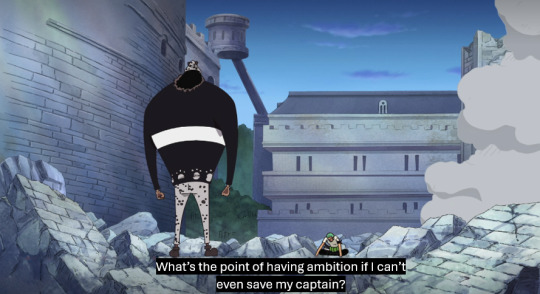
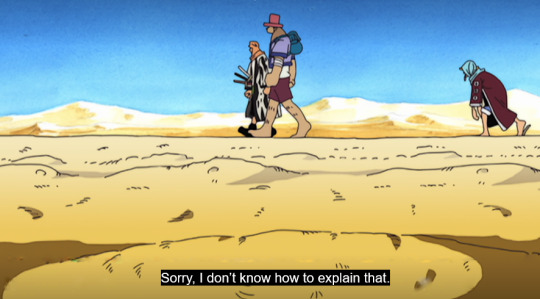
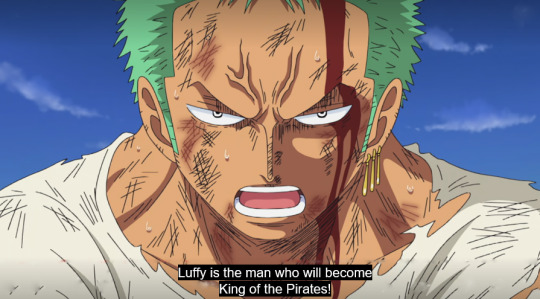
One Piece Episode 102 / Episode 377
"I might not have the same bounty on my head as Luffy at the moment, but I swear to you that I'm destined to become the greatest swordsman the world has ever known. Surely that must be worth something."
#one piece#zolu#i've been thinking a lot about how zoro's dream and luffy's are intertwined in his head and have been for a long time#like he's going to be the world's greatest swordsman For the king of the pirates and those two things will happen relatively simultaneously#and how he absolutely thought he was going to die in thriller bark for realsies but he'd rather that than the alternative#he'd rather give up his own dream Permanently if it meant luffy didn't have to lose his#that alabasta conversation lives in my head rent free btw that was so gay of him#anyways please ignore where you can see that i painfully tried to spot heal all the netflix stuff out of the screenshots lmao#i had to chop up the thriller bark conversation a little to make it fit in my four panel format obviously its longer than this#oh and quotes taken from the dub specifically which i know varies just slightly from the manga and probably the sub too#a:one piece#ship:zoro x luffy#mine
198 notes
·
View notes
Text
Jeanneil and kandrew will always be my biggest what if
#if Neil had stayed/grew up in the nest I can literally see them together#tsc just proves it Idc#I love Andreil to death and I wouldn’t wish the books to end any other way but something about jeanneil and kandrew just#ofc Andreil and jerejean make sense in the canon universe but I just fucking know that in another universe kandrew and jeanneil are together#the meme where are we together in every universe and it’s just the four of them forever intertwined no matter which universe they are in#they are literally THE perfect court (riko who?)#aftg#all for the game#tfc#the foxhole court#aftg series#aftg fandom#aftg incorrect quotes#andrew minyard#neil josten#andrew joseph minyard#the sunshine court#tsc#tsc and aftg supremacy#aftg thoughts#jerejean#jean moreau#kevin day#kandrew#jeanneil#andreil#kandreil#kevneil#aftg andreil#aftg andrew
143 notes
·
View notes
Text
jamie: we’re best friends. we share a toothbrush!
roy: i was not aware of that
jamie: well we do
#ted lasso#royjamie#roy kent#jamie tartt#they’re so obsessed with each other#intertwined souls if there ever were any#own post#incorrect quotes#incorrect ted lasso
218 notes
·
View notes
Text
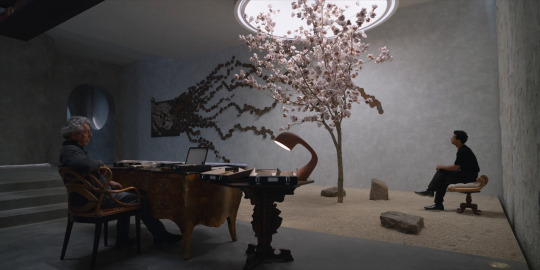

#amc iwtv#iwtv#the vampire lestat#interview with the vampire#interview with the vampire amc#web weaving#connection#media analysis#quote taken from Marius story in tvl#he’s describing Akasha and enkil and how they had found him through a spiritual like connection#my mind jumped to the archive room and how the past gets connected through here to be retold in the present#the viney tendrils representing the past the makers of the past the beginning#the flowering tree representing the offspring vampires the present or near present#and just how the two intertwine together to make a completed history#in the archive room of all places#idk seems fitting
41 notes
·
View notes
Text

"I could be in a room with a million people and still only look for you"
-Unknown
#life#life quotes#city life#daily life#love quotes#deep love#love#i love you#feelings#love life#lovers#self love#intertwined#eclipse#space#moon#sun#photography#nature#nature photography
19 notes
·
View notes
Text
Our dreams had tightened. We didn't aspire to change the world anymore. We wanted, simply, to be together.
Rachel Khong, from Real Americans
#i've nothing without you#as long as we're together#all consuming love#relationship#dreams#aspirations#entwined#intertwined#us against the world#otp#romance novel inspo#fanfic inspo#quotes#lit#words#excerpts#quote#literature#relationship dynamics#rachel khong#real americans
26 notes
·
View notes
Text


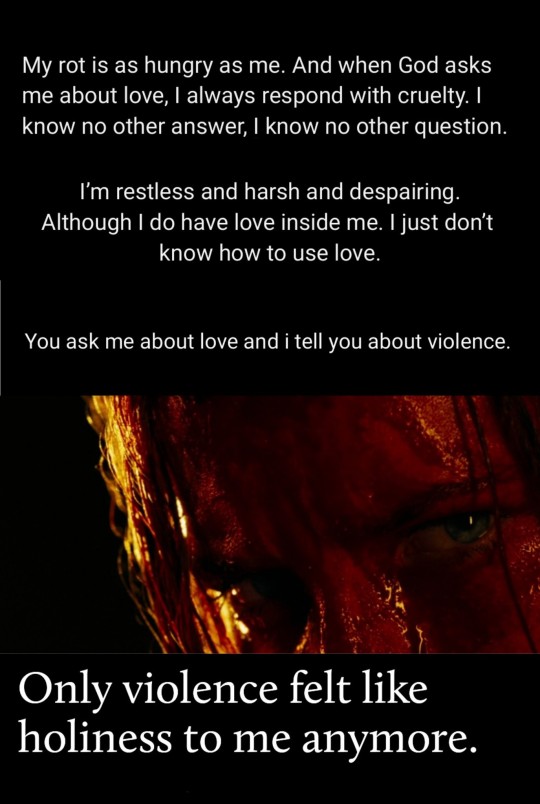
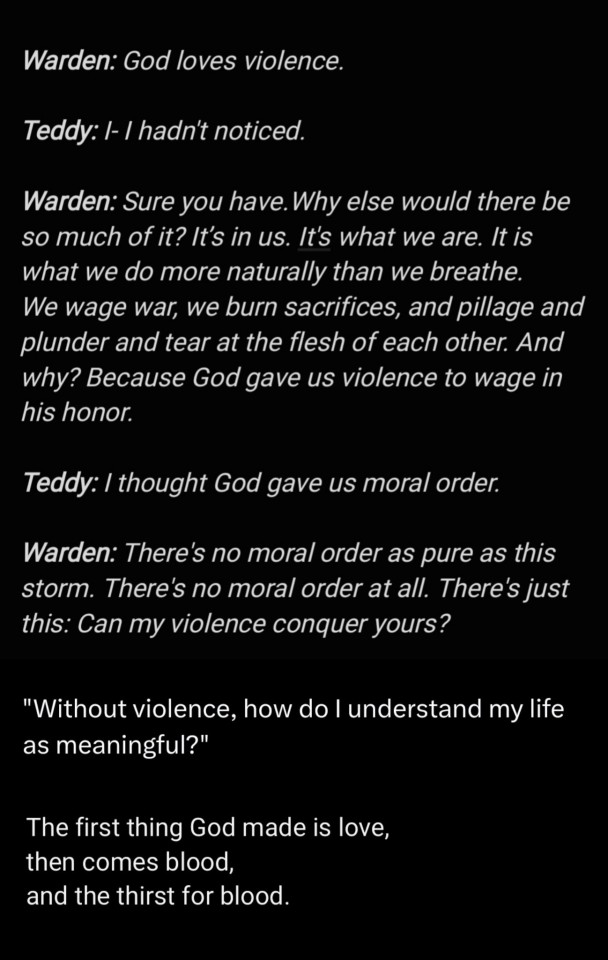
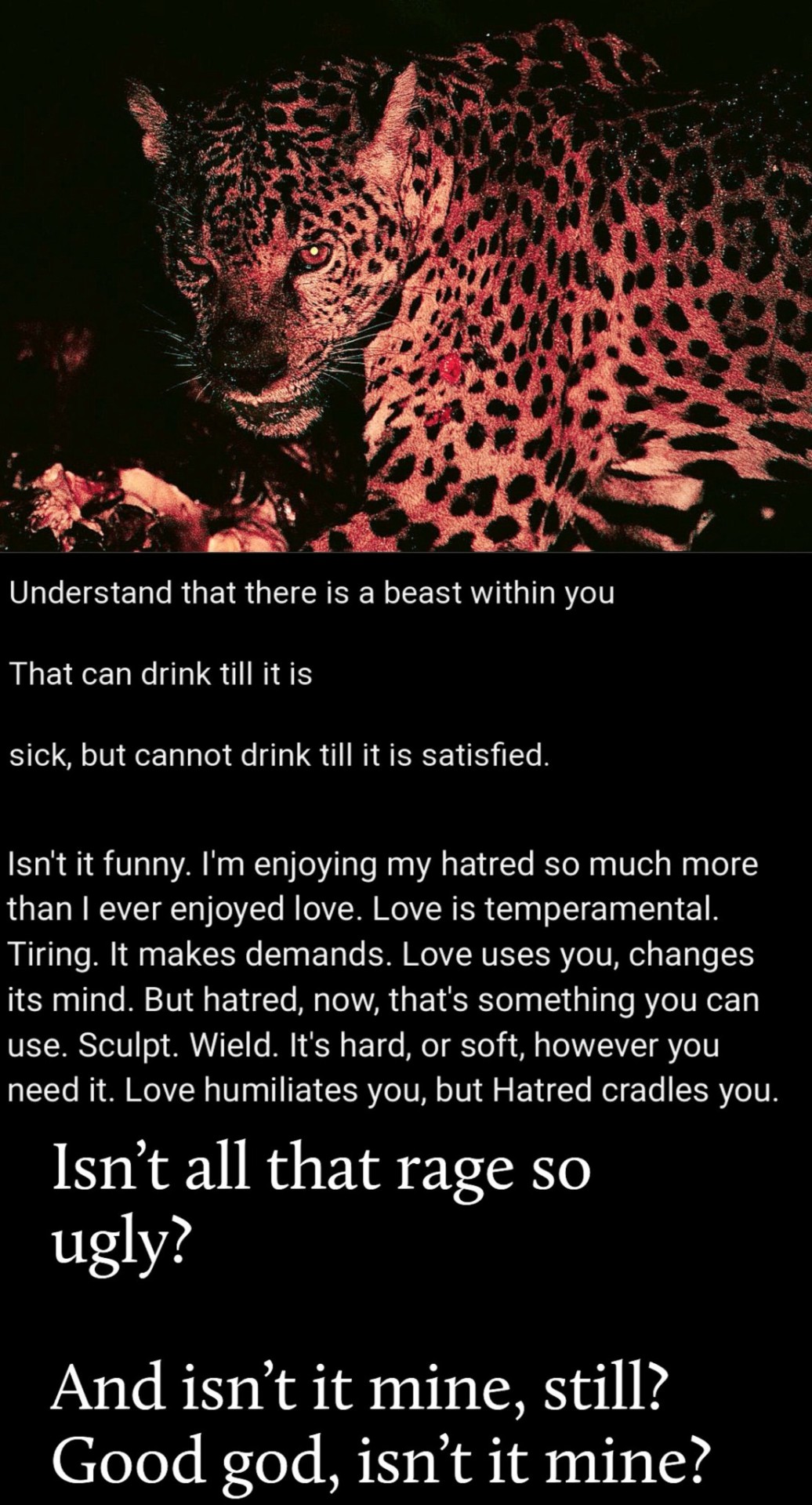


Instinct; I'm sick of the chase but I'm hungry for blood.
Adam Raised A Cain by Bruce Springsteen | Excerpt from letter to Bill Bufford by Martha Gellhorn | In The Dream House by Carmen Maria Machado | Starvation by Maya Angelou | Plainwater by Anne Carson | Deathless by Catherynne M. Valente I Belovéd; Slaughterhouse by Yves Olade | The Stream Of Life by Clarice Lispector | I Used To Be A Hole In The Ground by Katie Maria | A Dowry Of Blood by S. T. Gibson | Dennis Lehane from Shutter Island | Judas Goat by Gabrielle Bates | Stratis The Sailor Among The Agapathi by George Seferis | The Third Hour Of The Night by Frank Bidart | White Oleander by Janet Fish | Not A Girl by Ashe Vernon | Blasphemies At The 5th Street Station by S. Osborn | The Civil War By Anne Sexton | Girl As Burning by Kanika Lawton | Wishbone by Richard Silken | via @itsmeyirah
#web weaving#web weave#my weaving#my webweaving#parallels#words#quote#quotes#out of my collection#comparatives#webweave#compilations#compilation#intertextuality#intertwine#my edit#my edits#violence#anger#anger issues#female rage#rage#hunger#god#religion#on religion#on god#c ptsd#just cptsd things#actually cptsd
93 notes
·
View notes
Text
"It seems to me that if we love, we grieve.
That's the deal, that's the packt. Love and grief are forever intertwined.
Grief is a terrible reminder of the depths of our love. And like love, grief is non-negotiable."
~Nick Cave
#love#love quotes#love quote tumblr#grief#grieving#thoughts#girljournal#intertwined#reminder#depths#nick cave#journal#peace#life
20 notes
·
View notes
Text
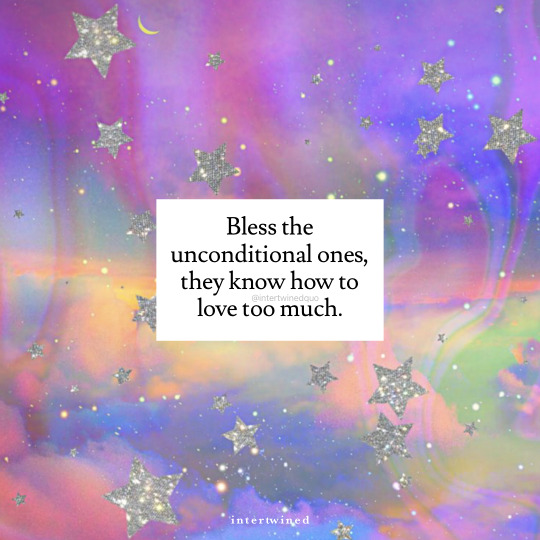
Love like dogs do: be loyal, protective, and grateful. 💝
#writing#love quotes#quotes daily#writeblr#writeaway#quote of the day#quote on tumblr#writers community#note to self#self love quotes#tumblr quotes#selfcare tips#writers quotes#instagram repost#intertwined quotes
2 notes
·
View notes
Text
Part 2 of this post because speaking of how the parallels are paralleling:
Stede watches Ed give up his life as a pirate and embrace a softer existence (something Stede's been trying to move away from this whole time), he's visibly distraught over this and worries his presence has pushed Ed towards this. At the same time, his and Ed's relationship moves way too fast for him. All this leads to him panicking and so on a whim he runs away to have a "normal" life, leaving Ed to spiral & self-destruct with Izzy remaining by his side. (from bits & pieces, like Ed talking about Stede hating his naked chin, there's a large possibility Ed believed that Stede liked the novelty of the legendary pirate and lost interest when Ed started showing another side of him)
&
Ed watches Stede move further towards a life as a pirate and embrace a more vicious existence (something Ed's been trying to move away from this whole time), he's visibly distraught over this and (though it's not as explicit, we can presume) worries his presence has pushed Stede towards this. At the same time, his and Stede's relationship moves way too fast for him. All this leads to him panicking and so on a whim he runs away to have a "normal" life, leaving Stede to spiral & self-destruct with Izzy remaining by his side. (from bits & pieces, like from what Ned Low said the day before, there's a large possibility Stede believed that Ed liked the novelty of the bumbling gentleman and lost interest when Stede started showing another side of him)
And equally as interesting is not just the ways these two situations parallel each other so well but the way in which they differ:
Izzy & all the shit he said was the final thing that pushed Ed over the edge which eventually led to their own relationship fracturing
Then things go to shit for both of them in different ways and Izzy gets to see what Ed is like without Stede and devoid of any and all hope. What he's like when he's drunk and heartbroken and begging for a fight and in the end it takes Izzy too long to realise they're (metaphorically) sailing straight into a storm & it takes him too long to try and put a stop to it all and fix everything
Then there's the newest situation;
Izzy's trying his best to drag Stede away from the edge and this leads to a moment that builds their own relationship, where they are both able to find common ground over being in love with the same man
And Izzy sees Stede drunk and heartbroken and begging for a fight and immediately tries to steer him back to the ship where it's safe. But in the end he's still too late.
(luckily stede's self-destruction is a lot less suicidal than ed's. though some could argue that challenging zheng after seeing her take down steak knife in seconds is still some level of suicidal)
the point being all their actions make so much sense, and stede&ed work as couple because they mirror each other so well but they also keep hurting each other because of it
Ed & Stede's own trauma and insecurities and inability to properly express themselves keeps them from finding that middle ground where they can finally find a more permanent happiness and I'm not sure how much of this they'll be able to address by the end of S2.... yes they'll come together and be together but they'll still have a lot of work to put in, they'll still have to learn to make compromises and how to be themselves outside of each other, they'll have to put in the hard work to keep a happy relationship going so S3 being about "a more mature love" makes a lot of sense
#david jenkins said izzy's path is intertwined with gentlebeard's and yeah that's pretty intertwined alright#what's that friend's quote about chandler & monica having to buy a house with a room over the garage for joey?#this wasn't initially supposed to feel shippy but it sure does sound that way huh? mad world.#our flag means death spoilers#ofmd spoilers#ofmd s2#our flag means death s2#ofmd#our flag means death#ofmd season 2#our flag means death season 2#ofmd stede#ofmd izzy#ofmd edward teach#ofmd ed teach#stede bonnet#edward teach#izzy hands#gentlebeard#blackbonnet#edizzy#blackhands#stizzy#gentlehands#steddyhands
86 notes
·
View notes
Text

#will graham#hannibal lecter#hugh dancy#mads mikkelsen#hannigram#hannibal#nbc hannibal#quotes#hannibal loves will#intertwined
25 notes
·
View notes
Text

#yes#i loved her#i love you#soulmates#twin flame#love#interstitial: our hearts intertwined#lovers#literature#love quotes#poetry#quotes
22 notes
·
View notes
Text
Northern Lights
.
I heard a voice that cried, “Balder the Beautiful is dead, is dead!”
.
Who knows what to call the lonely exhilaration of gazing out into a bright Northern sky? Who can name it?
Jill could.
It was the same feeling that came to her at the teetering edge of a cliff at the end of the world. The same feeling as when she said her goodbyes to Puddleglum and Scrubb before they freed the prince. It was the same feeling that engulfed her now, sitting in the professor’s library with a volume of poetry before her.
.
The wild northern wastes were well named: utterly wild, perfectly desolate, and terribly Northern.
It was lonely there and often cold, but the sky was an endless whorl of gales and gray clouds. The stones were indigo under the pale winter sunlight, and at sunset they glowed a soft gold, as though lit from within. The gorges and moors lay before her, and Jill loved them for their vastness and their distance. Little grew in that country, but that which did was full of vigor. The grass was short and coarse. Every tree was victorious.
On a still, deep breathing winter night, Jill lay on her back beneath a covering sky. It seemed beautiful to her, rich and strong and glorious. Her eyes drank in the breadth of it until her tears began to blind her. Yet even then, she still couldn’t look away.
She felt bigger here in the wastes, like the landscape. Stronger, wider. The further she walked, the more she felt herself stretch out. One of these days, maybe, she would catch hold of herself at the edge and tug, and Jill Pole would open up clear as the Northern sky.
.
And through the misty air passed the mournful cry of sunward sailing cranes.
.
The thing that surprised Jill most about the battle with the serpent was this: there wasn’t any yelling. Always, it seemed, whenever she read stories about people fighting with swords, the combatants would let loose some guttural yell before their blows fell. They would scream and writhe in pain as they died. They would shout instructions to their fellows, “Look out!” or “Hit him there!” But the whole affair with the serpent passed with very little noise.
The poison-green coil constricted around the prince; he raised his arms and got clear, struck the serpent hard, and then Scrubb and Puddleglum dispatched the creature with heavy, hacking blows. The monster died writhing, but not screaming. And then it was over.
The thing that surprised Jill most about the moments before battle was, of course, the noise. She could hear her own heartbeat in her ears. She couldn’t stop listening to her own breathing. Every footstep rang out like a gong, and any words exchanged rang with a kind of finality that made them sound louder than anything.
“You are of high courage,” Rilian told her when it was over.
Yet the thing in Jill’s chest just then didn’t feel like courage. It was a deep breath, a plunge, and a release. It was loud and quiet all at once, till she was standing, blinking in the night air as snowballs whizzed round her, and maybe that was something like courage after all.
.
And now, there was a stirring in her chest as she reread the words on the page. Sing no more / O ye bards of the North / Of Vikings and of Jarls! / Of the days of the Eld / preserve the freedom only / nor the deeds of blood!
She thought of grief. Of freedom.
The lonely ache in her belly grew stronger. She felt herself uplifted into the huge regions of sky that were just beyond those cliffs, weightless as the breath beneath her buoyed her up, further, further…
.
When she saw Caspian up close, Jill thought that he looked like the sort of person who was meant to live in a castle. A silly thought, perhaps, since she knew he was a king– only she wasn’t thinking of Cair Paravel. No, Jill was picturing the ruins of an old British castle she’d visited once on holiday. She still remembered how the stonework had loomed over her, all towering arches and crumbling walls. That was where Caspian seemed to belong. He had an air of ancient tragedy about him.
When Rilian disappeared, all things had wept but one. The serpent coiled beneath the earth and flicked its forked tongue, spewing poison.
Now, the king half rose to bless his son. He whispered a few words as he caressed Rilian’s cheek, words meant only for those beloved ears. Jill saw Caspian’s lips move and wondered what a man like that could possibly say, when time ran so short.
.
They laid him in his ship, with horse and harness, as on a funeral pyre. Odin placed a ring upon his finger, and whispered in his ear.
.
Jill furtively took Myths of the Northmen and held it up to the professor with a question in her eyes. She was still shy around him and Miss Plummer, though she wished she wasn’t.
“Would you like to take that with you?”
“...Please.”
.
It takes a certain kind of person to be exhilarated by the heights. You’ve got to love vastness more than you fear falling.
.
They walked to the train station with an autumn wind blowing hard, and though Jill couldn’t fathom why, she turned and saw Lucy grinning, fierce and joyful– grinning and reaching a hand out towards her friend.
Jill reached back and grabbed it. “What will you do, once we’re back in Narnia?” she asked.
The wind blew harder. The feeling of anticipation grew and grew, until it felt so big that she couldn’t dream of containing it. And there was Lucy, holding Jill’s hand and laughing like it was easy.
.
Preserve the freedom only, not the deeds of blood!
.
The second time Jill went to Narnia, she found herself not at its edge, but at its end.
The thing about the Norse apocalypse is: it feels believable. It doesn’t reach beyond earth’s horizon to pull down hope beyond hope. It’s only the kind of courage that hopeless humans have: you are going to die, so you might as well die bravely.
They found the last king of Narnia bound to a tree. His eyes were faintly red from crying, and his wrists and ankles red from the coarseness of his fetters.
In the Norse myths, Loki broke free of his fetters at the end of the world. He escaped to the helm of a ship made from the fingernails of the dead.
The last king of Narnia fell forward onto the ground when Eustace cut his bonds. Jill crouched down beside him and watched as he rubbed feeling back into his legs. He wasn’t so much older than her, she thought. Jill was sixteen years old; the last king of Narnia could not be older than twenty-two.
In the myths, the gods were ancient, hewn from the bodies of giants old as the earth.
Jill put out a hand and helped the last king of Narnia to his feet. Not for the last time, she shivered. Something deep inside her (deeper than her chest, than her heart, than the marrow of her bones, deep as her soul, deeper) was singing an elegy and she didn’t know why, or how, or where it had come from. The king clutching her hand, who could have been her older brother, would have no heir.
Yet when he asked, “Will you come with me?” Jill could only smile.
“Of course,” she said. “It’s you we’ve come to help.”
.
And the voice forever cried, "Balder the Beautiful is dead, is dead!"
.
“This really is Narnia at last,” murmured Jill. The springtime wood had little in common with the wintry lands she had traveled the last time she was here– but it awakened the same feelings of Northernness in her chest.
Their party may as well have been the only people in the world, for how isolated their little wooden path seemed. Yet it wasn’t lonely, really, cocooned in all that green with the wind in the leaves and the primroses nodding and blue of the sky peeking through above.
Jewel told stories about what ordinary life was like when there was peace here. As he spoke, Jill could almost hear the trees' voices speaking out of the living past, whispering, stay, stay. She was caught up to a great height, looking down across a rich, lovely plain full of woods and waters and cornfields, which spread away and away till it got thin and misty from distance.
“Oh Jewel–” Jill said with a dreamy sigh, “wouldn’t it be lovely if Narnia just went on and on– like what you say it has been?”
She needn’t be a queen, as Susan and Lucy had been, but Jill would’ve liked to stay. She would've liked it all to stay, if it could. She might have been a woodmaid in a place like this: with the turn of the seasons, the swaying trees, swords into plowshares. Oh, if only she could stay!
Ahead, the last king of Narnia was softly singing a marching song. Jill tilted her head back and let warm shafts of sun caress her face.
.
I saw the pallid corpse of the dead sun borne through the Northern sky.
.
“So,” said the last king of Narnia, “Narnia is no more.”
He tried to send them back. Jill shook her head. It was very loud and very quiet. “No, no, no, we won’t. I don’t care what you say. We’re going to stick by you whatever happens, aren’t we Eustace?”
They couldn’t go back anyway. Neither would they flee, not south across the mountains nor North into the great wide wastes. No, they would stay. They slept in a holly grove on the edge of ruin, waiting for the bonfires to light.
Jill slept fitfully, but in between she dreamed. She was high up in the air, buffeted by clouds and pierced by shafts of silver sunlight.
.
They all died, in the myths. Jill knew that. It seemed beautiful and brave when she read it in her book, tucked away safe in the Professor’s library. It was terrifying now– and yet it was beautiful and brave still.
The dogs came bounding up, every one of them, running up to the king and his men with their tails wagging. One of them leapt at Jill and licked her face, tongue roughly lapping up the sweat and tears that had dried on her cheeks.
“Show us how to help, show us how, how, how!” the dogs were barking, almost ebullient in their enthusiasm. Jill bit back a sob. How lovely, she thought. How terribly beautiful. How dreadfully brave.
.
So perish the old Gods!
.
The white rock gleamed like a moon in the darkness when Jill finally reached it. She ran back to it alone, her hands shaking, while her friends stayed forward with their gleaming swords and Jewel’s indigo horn.
The while rock gleamed like the moon. Jill’s first shot flew wide and landed in the soft grass. But she had another arrow on her string the next instant. It was speed that mattered, not aim. Speed, and turning aside when she cried, so as not to drip tears on her bowstring.
The white rock gleamed. In the myths, a wolf devoured the moon. Peter’s wolf, slain many thousand years ago in this world, opened his jaw wide and darkness fell over everything.
Her next arrow found its mark. After that, she lost track. She pulled, and she prayed that her hands kept still another minute.
The unique thing–maybe the appealing thing–about the Norse myths, was that they told men to serve gods who were admittedly fighting with their backs to the wall and would certainly be defeated in the end. Jill let loose another arrow, felt the white rock at her back, and she knew that the clawing fear–beauty–bravery deep in her gut was the same feeling that she felt on the heights. The same feeling, but a different face. You’ve got to love vastness more than you fear falling.
.
“I feel in my bones,” said Poggin, “that we shall all, one by one, pass through that dark door before morning. I can think of a hundred deaths that I would rather have died.”
“It is indeed a grim door,” said Tirian. “It is more like a mouth.”
“Oh, can’t we do anything to stop it,” said Jill. Better to be dashed to the ground than it was to be devoured.
“Nay, fair friend,” said Jewel. “It may be for us the door to Aslan’s country and we sup at his table tonight.”
A hand tangled itself in her hair and started to pull. Jill braced herself hard, for a moment, until her strength gave out. She was standing on the edge of a high, Northern cliff. She took another step, and fell.
.
Perhaps when the moment comes, our bite will prove better than our howls. If not, we shall have to confess that two millennia of Christianity have not yet brought us to the level of the Stoics and Vikings. For the worst (according to the flesh) that a Christian need face is to die in Christ and rise in Christ; some were content to die, and not to rise, with Father Odin.
.
The world inside the stable was beautiful. It made Jill’s chest ache in all the loveliest ways.
.
Build it again, O ye bards, fairer than before!
#okayyyy so#i've been down the tolkien/lewis/norse mythology rabbit hole lately#it's a lot#but i've been picking at this piece in my head for a while now#which is more a rhapsody than anything else#but another for my narnia/classic lit sequence of pieces#the quotes are mostly pulled from Longfellow's Tegners Drapa translation#which Jack discusses in Surprised by Joy as one of the works that inspired feelings of joy and 'Northernness' in his boyhood#there's also a Weight of Glory quote in there#(paraphrased)#and one from the intro to Joy Gresham's book on the 10 Commandments that Jack wrote#(that's that last passage in italics)#i'm not really sure i was trying to make a point with this so much as just. explore that feeling of northernness#bc really northernness is two things#it's joy and exhileration brought on by beauty#and it's that beautiful hopeless courage when faced with unwinnable battles#and i love how intertwined those two things are for lewis#and let's be honest for me too#so that's what this is#hope it holds together okay#narnia#chapter one#night under narnia#dying of thirst#pontifications and creations#leah stories
25 notes
·
View notes
Text
dare i say that "what am i without you?" "yourself" is R27 coded
#honestly i feel like this could be spun around MOST 27 ships#but thinking about the panic and frustration when reborn was ready to leave and tsuna was like the FUCK you are#the man who helped make him into who he was today trying to leave. the instability of not being able to perceive a future without him#reborn confident that he's not needed and ready to step away bc it has to happen (its his fate after all)#tsuna: >:( i know what i am but what are you BITCH#reborn tells him 'yourself' and its true but tsuna is like. ok. well now you have to see me be myself#(delusional)#LISTEN. IT WOULD WORK OK. I HAVE A VISION. IT MAY NOT MAKE SENSE LIKE THIS. BUT IT WORKS. I PROMMY#the quote is suppoesd to be about codependecy and they;re not necessarily codependent but they Are irreversibly intertwined#thoughts.ddz
9 notes
·
View notes
Text
Oh what agony it is . . . to love somebody so much and not to be him.
Iris Murdoch, from A Fairly Honourable Defeat
#call me by your name#intimacy#identity#becoming#intertwined#the boys wanna be him#i am heathcliff#all consuming love#quotes#lit#words#excerpts#quote#literature#iris murdoch#a fairly honourable defeat
6 notes
·
View notes